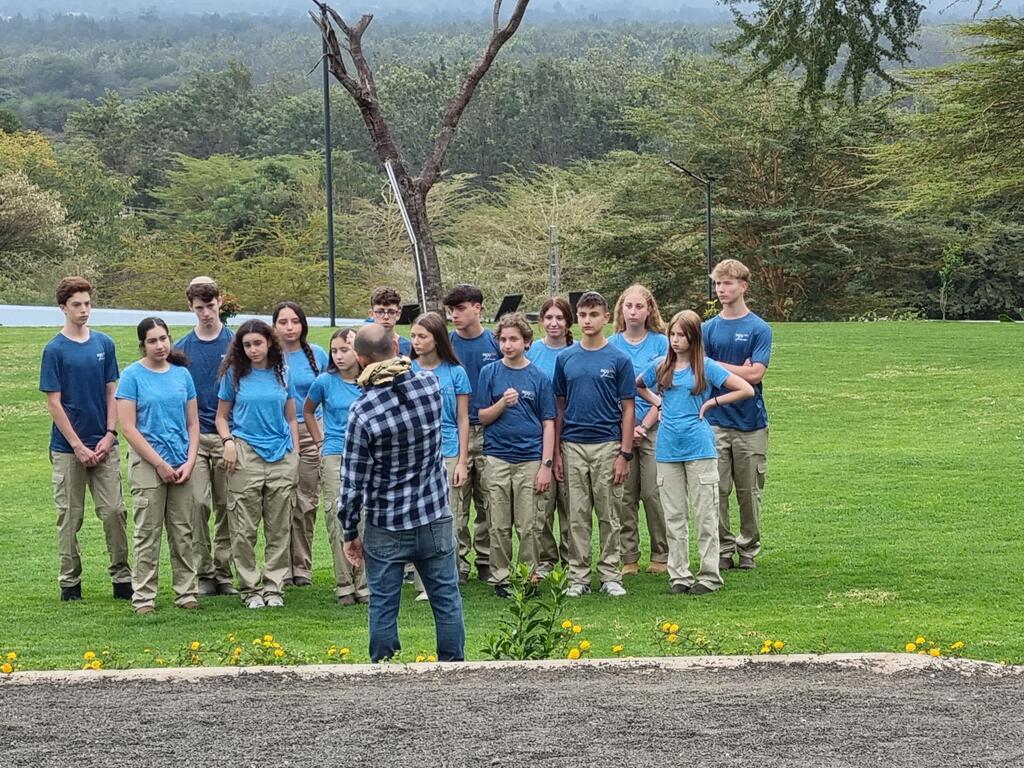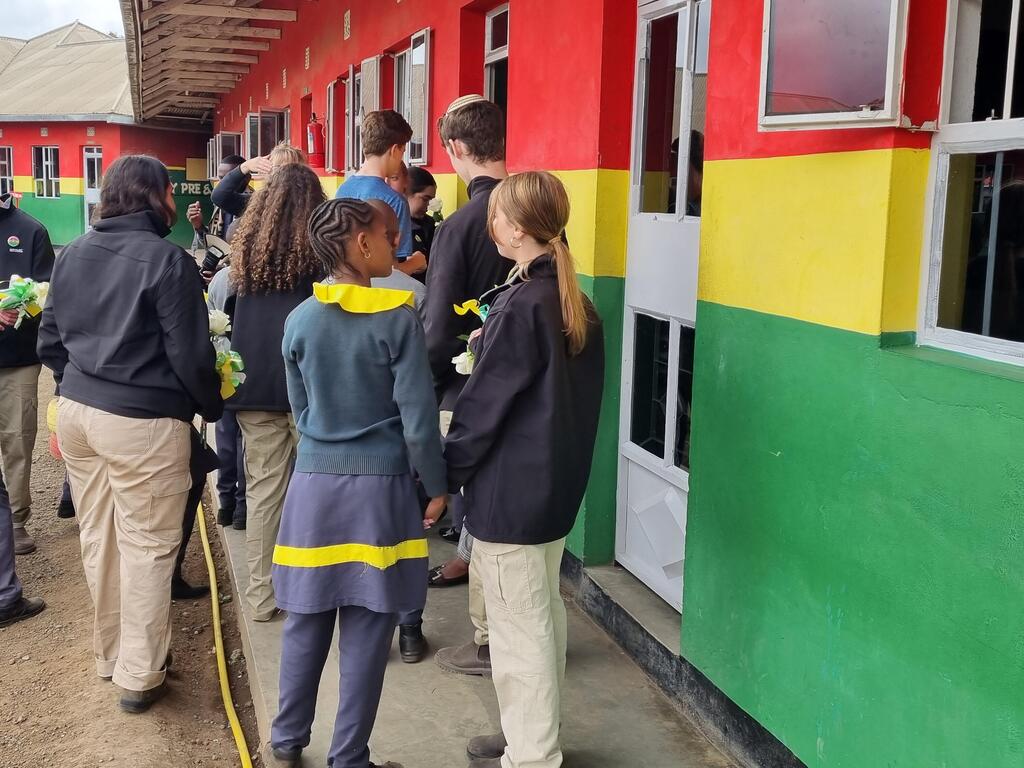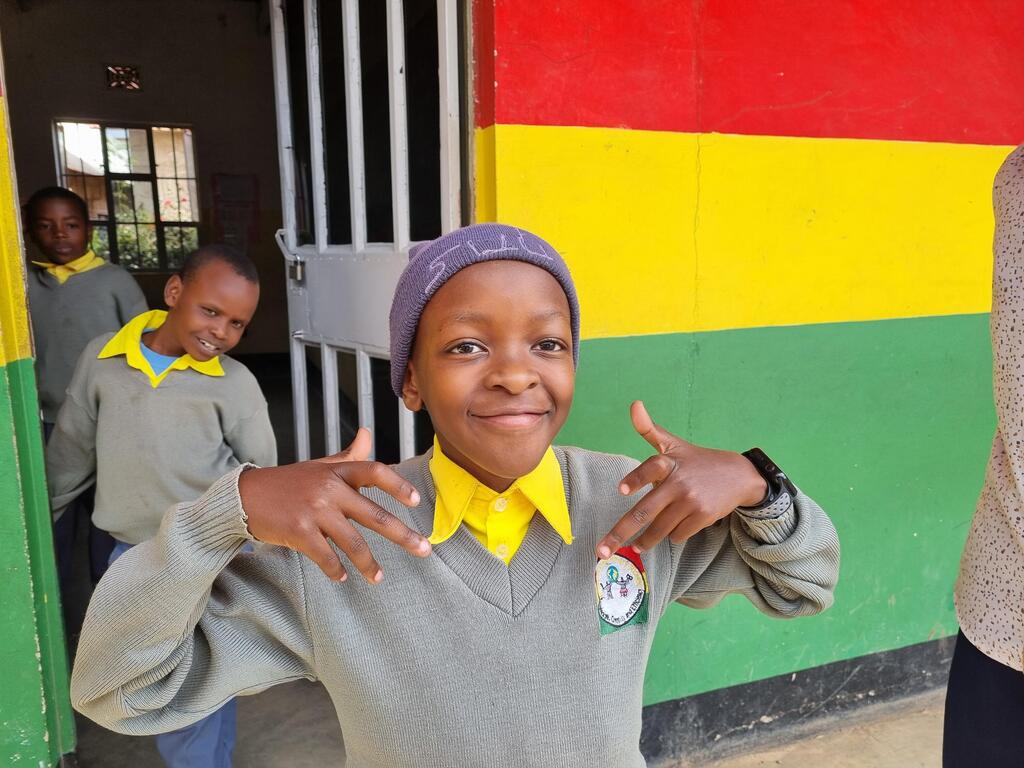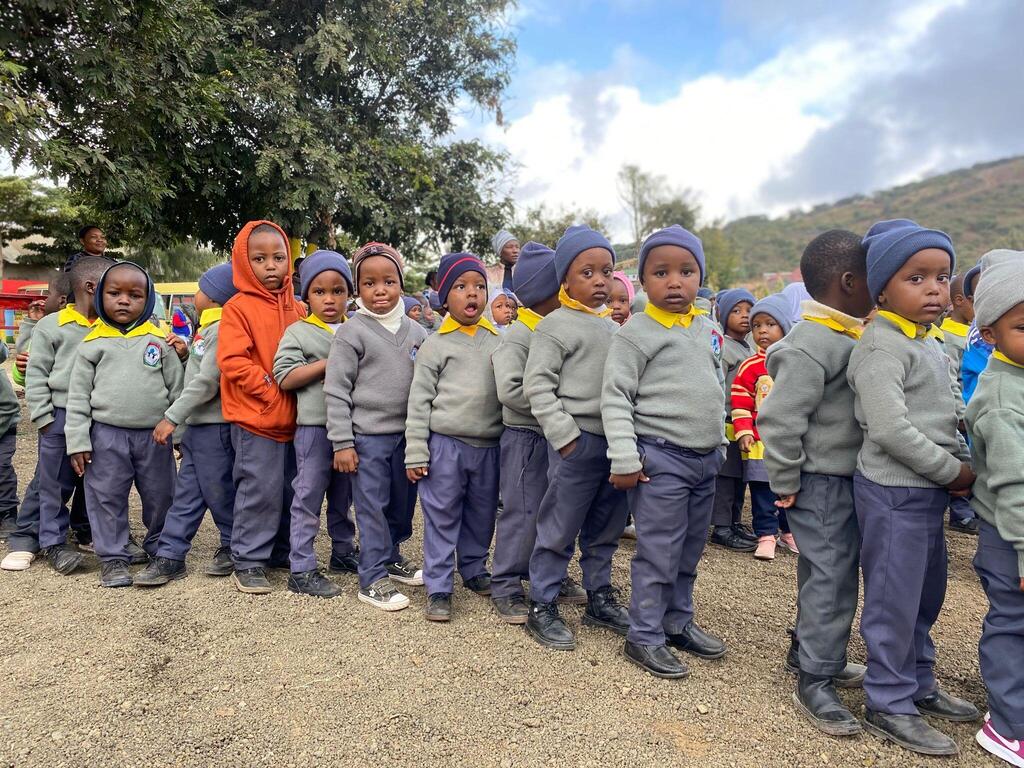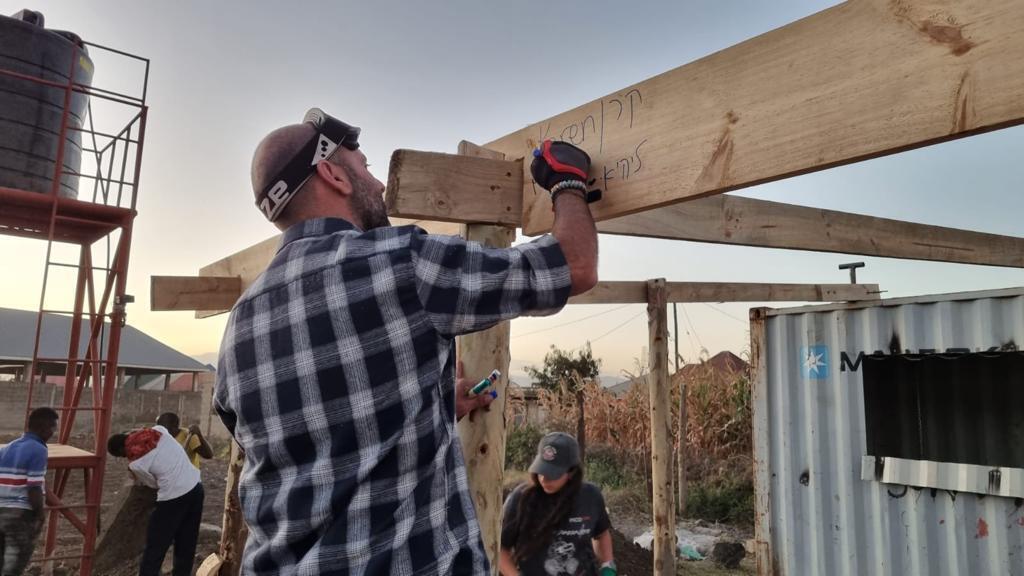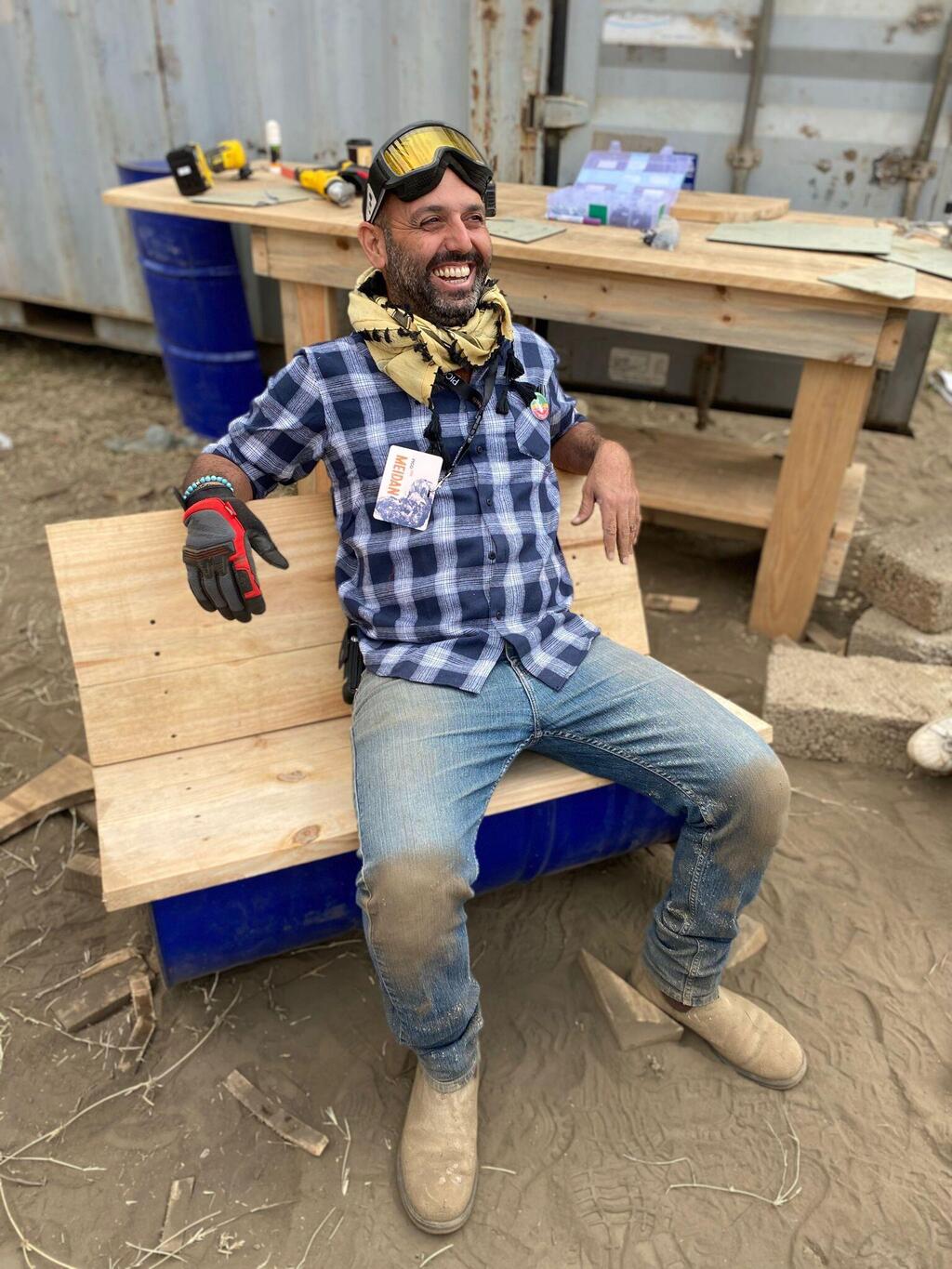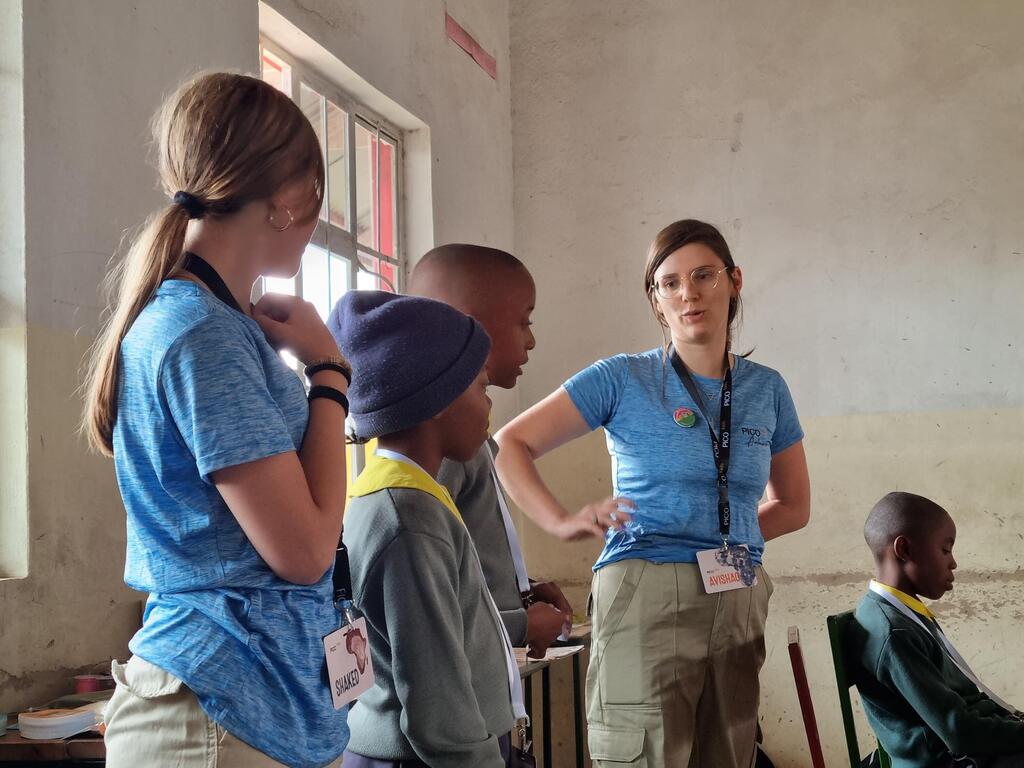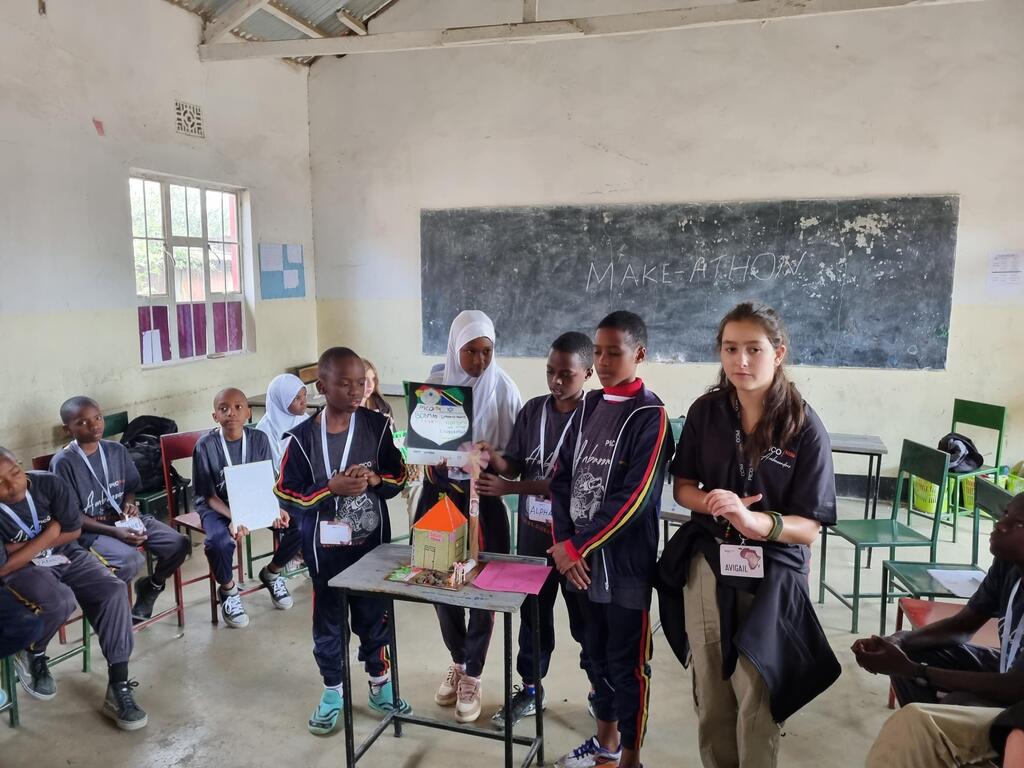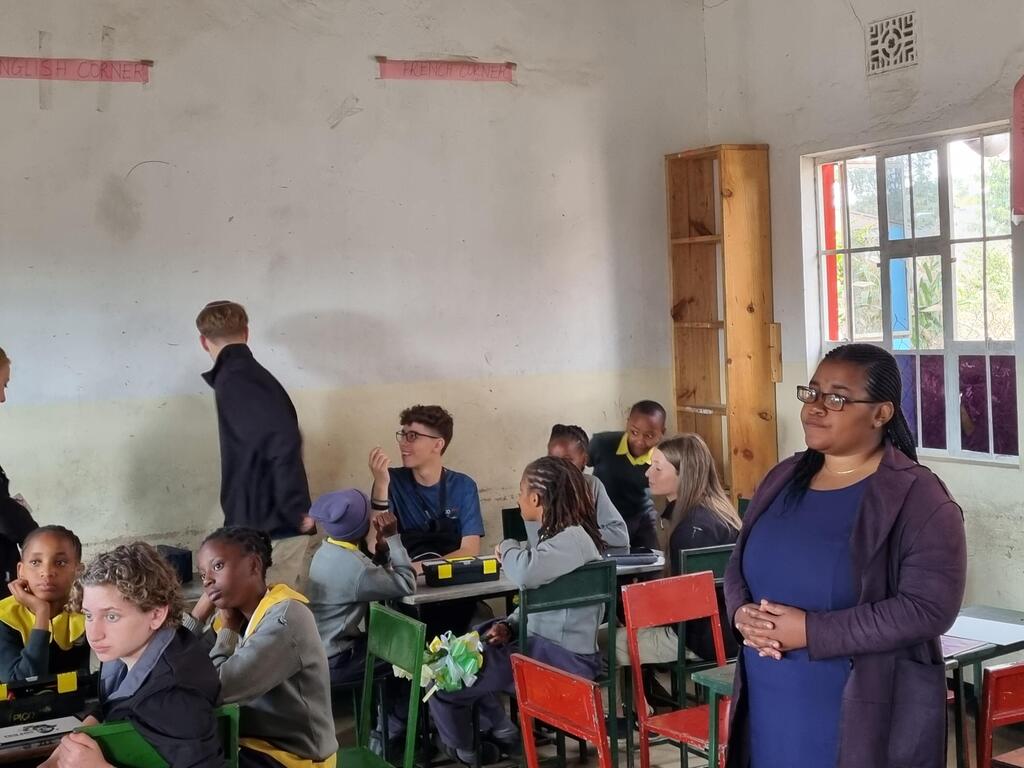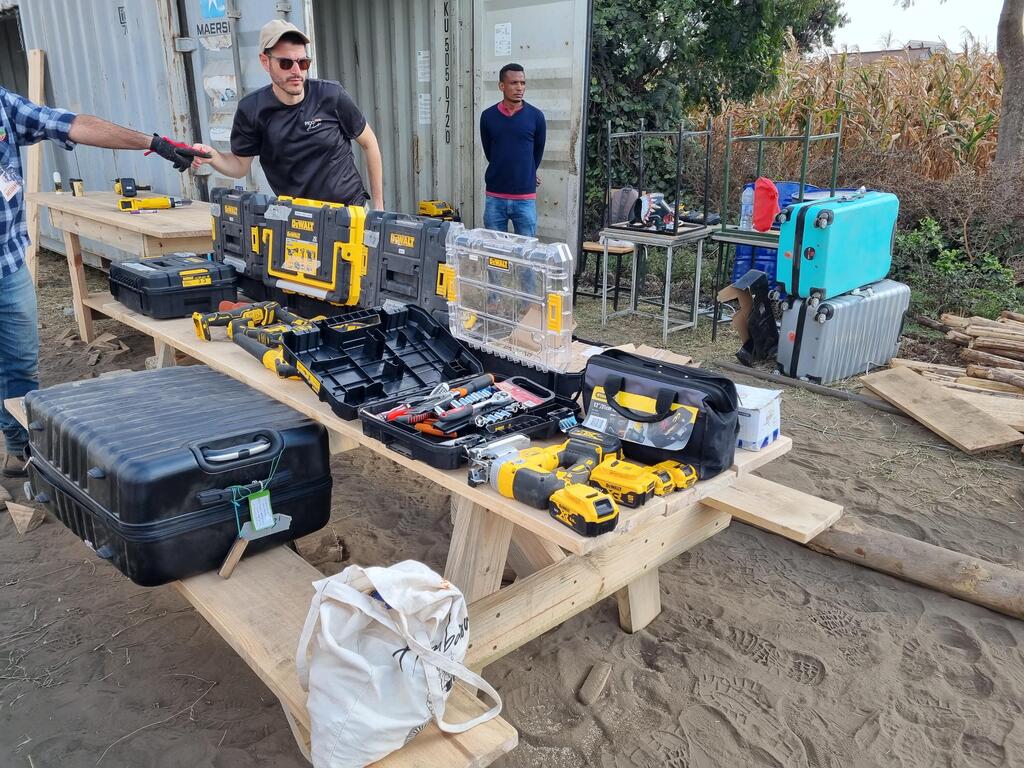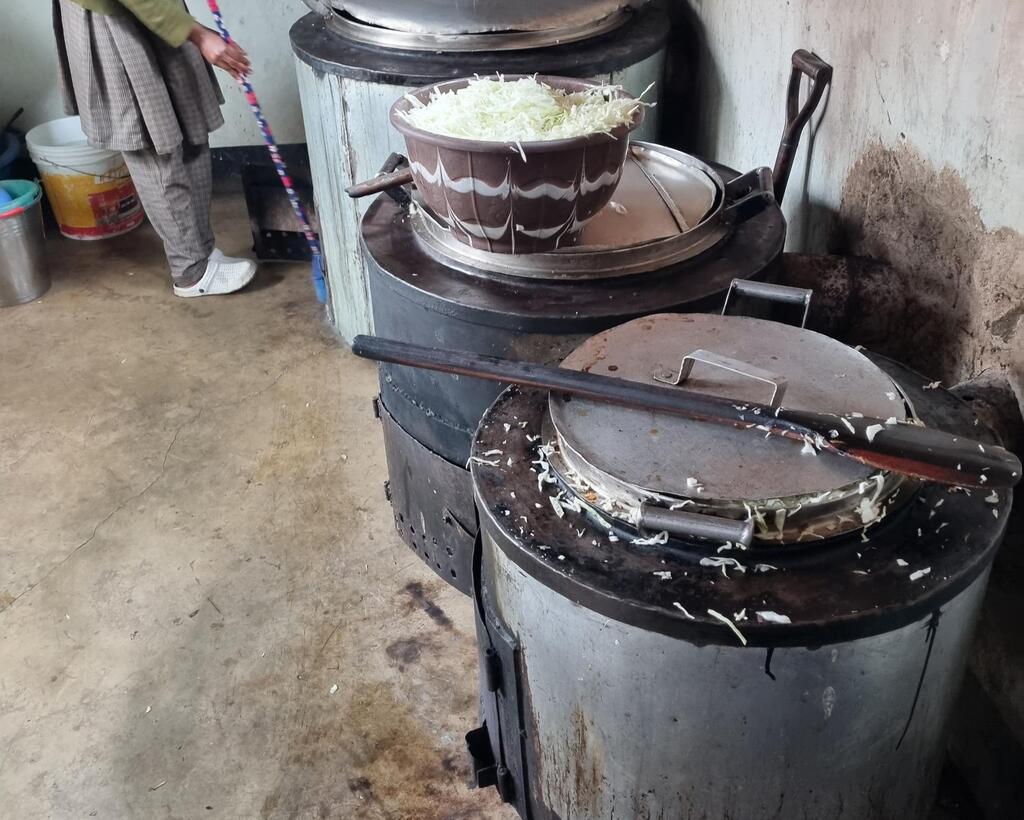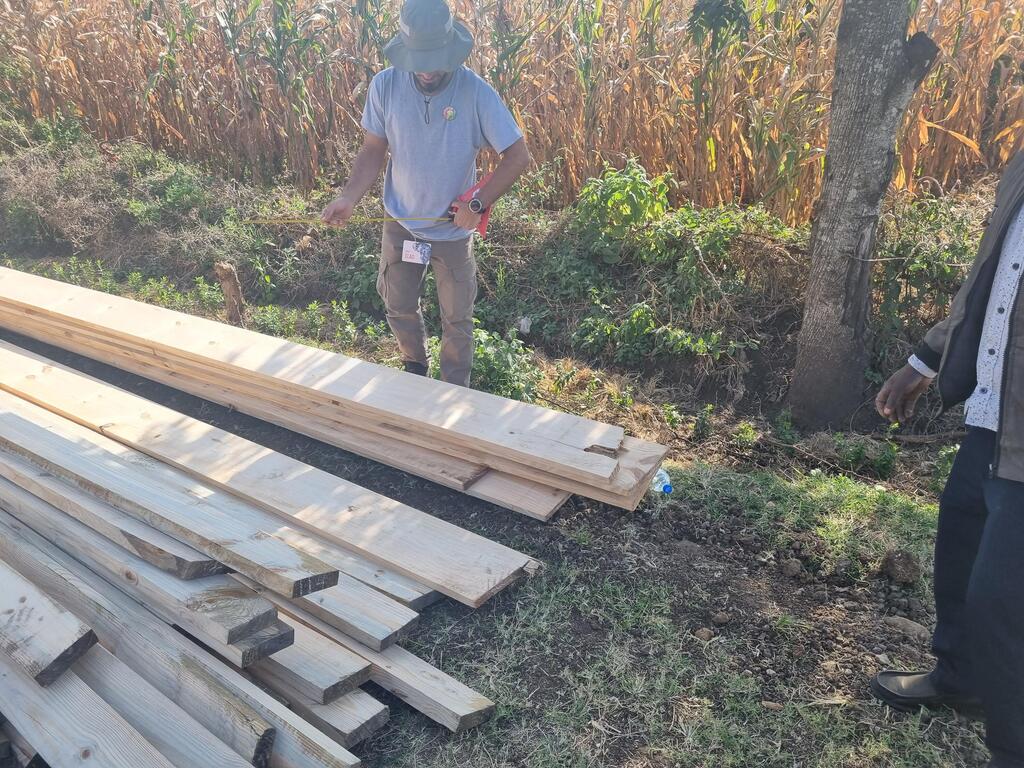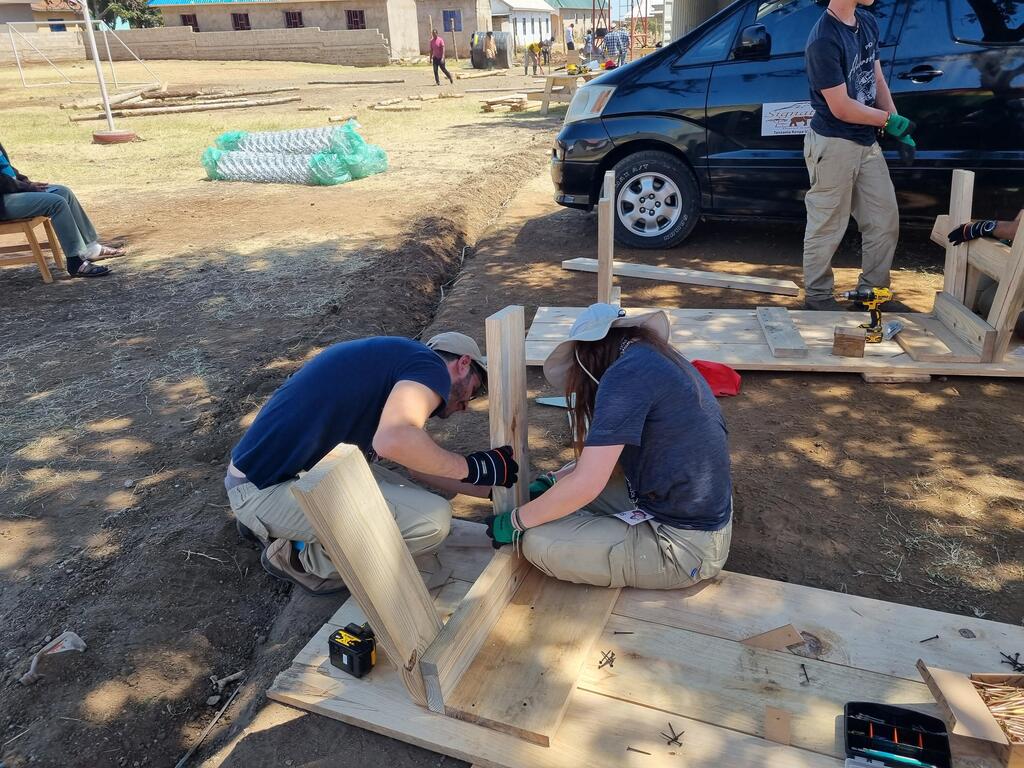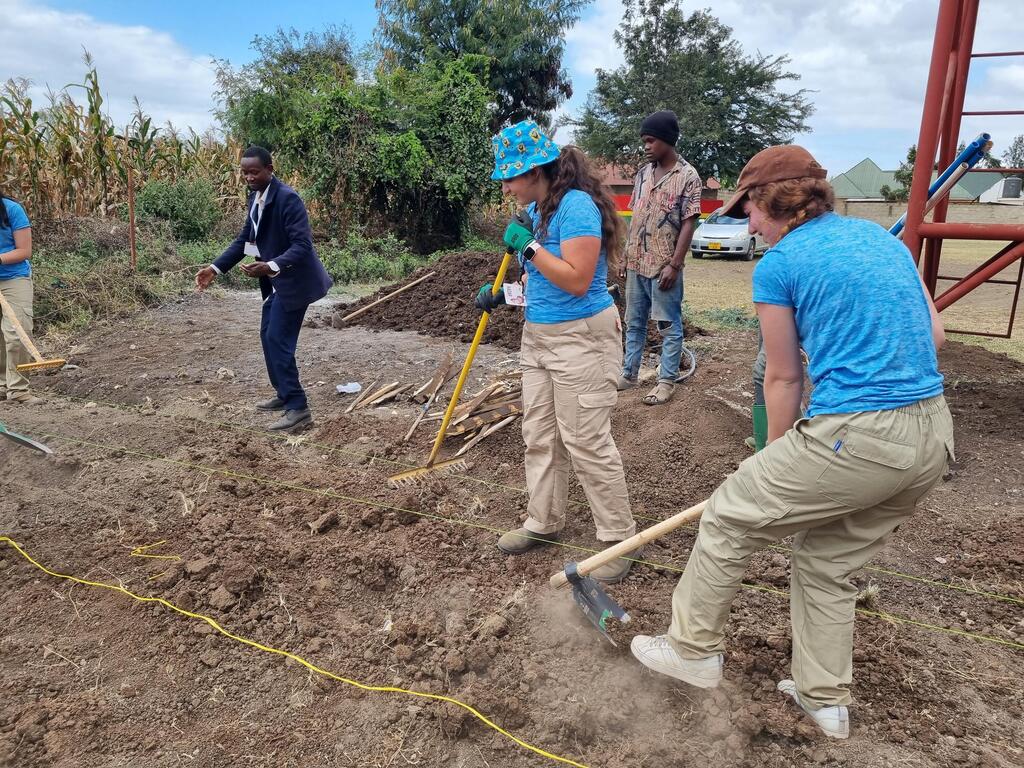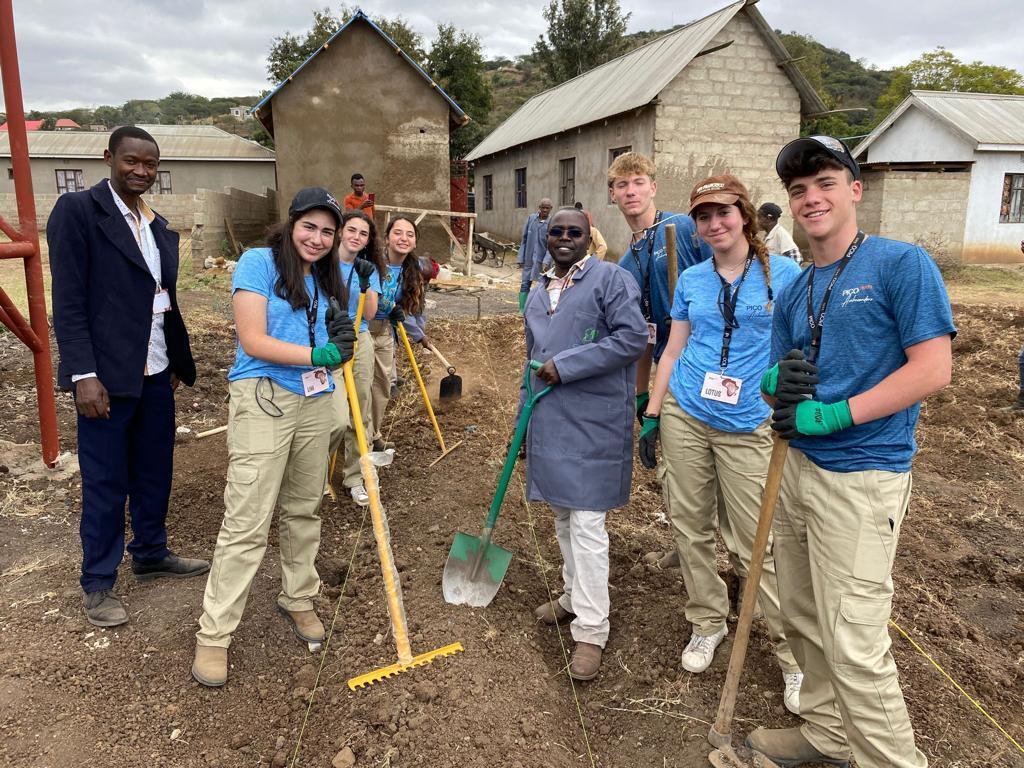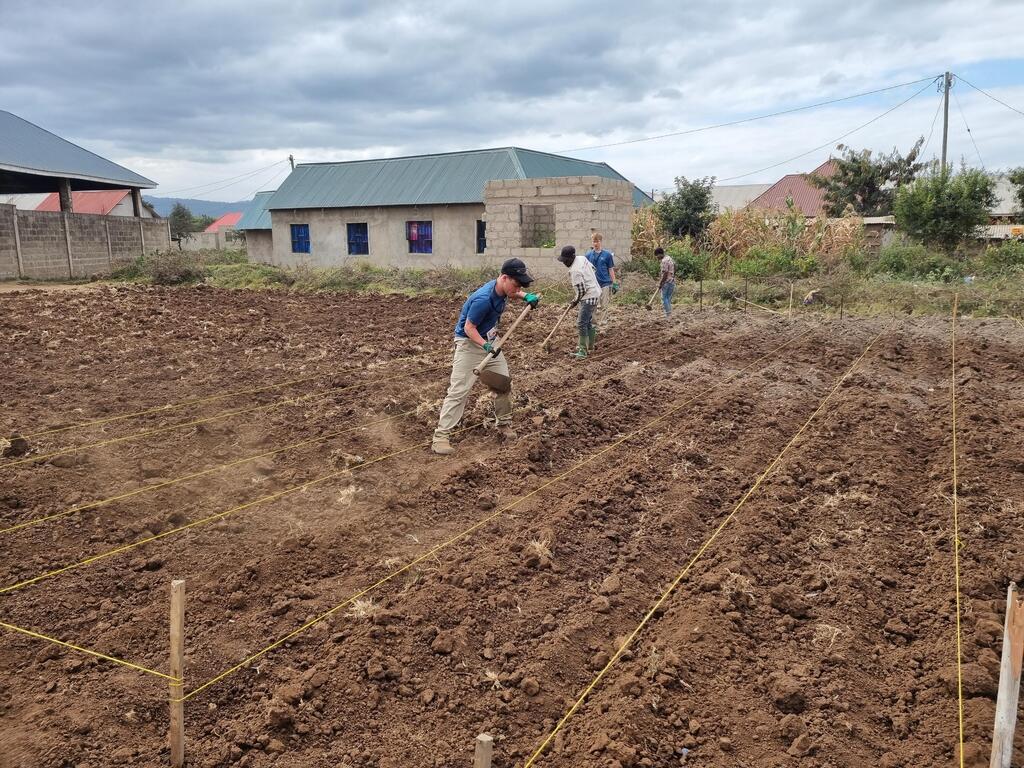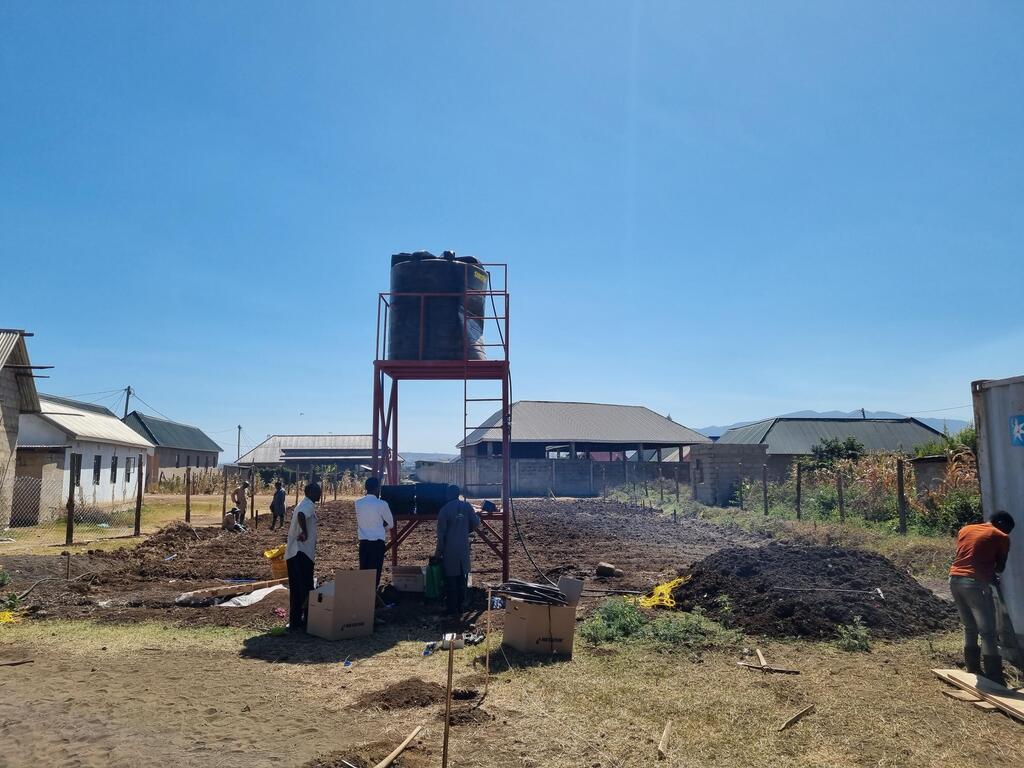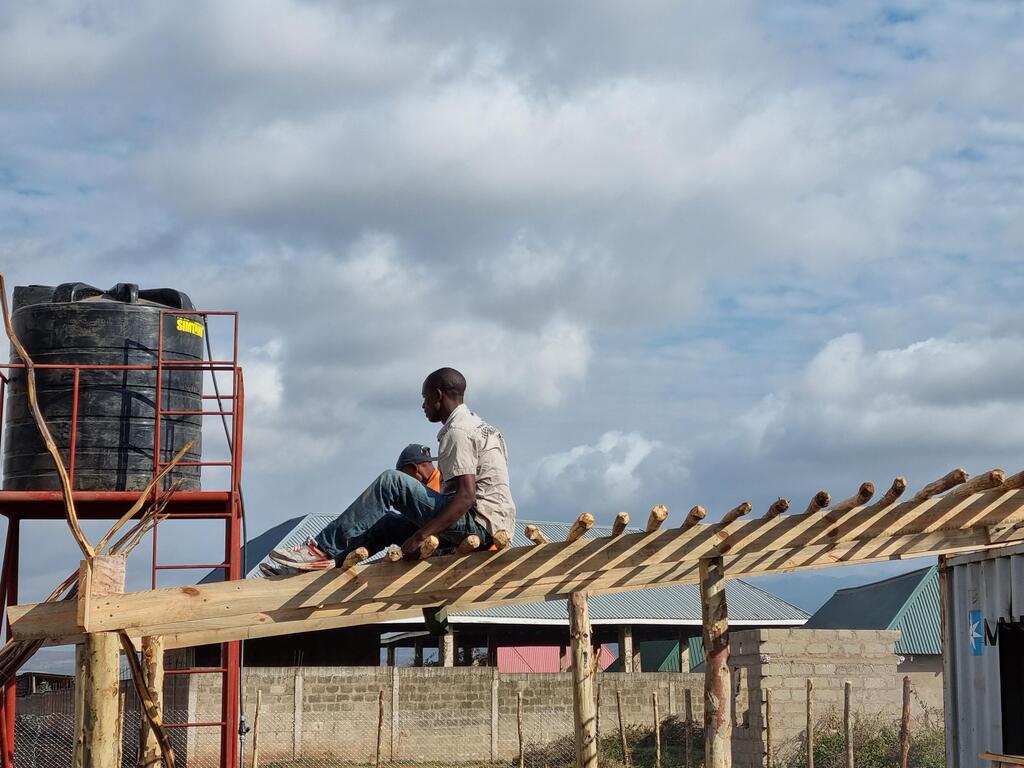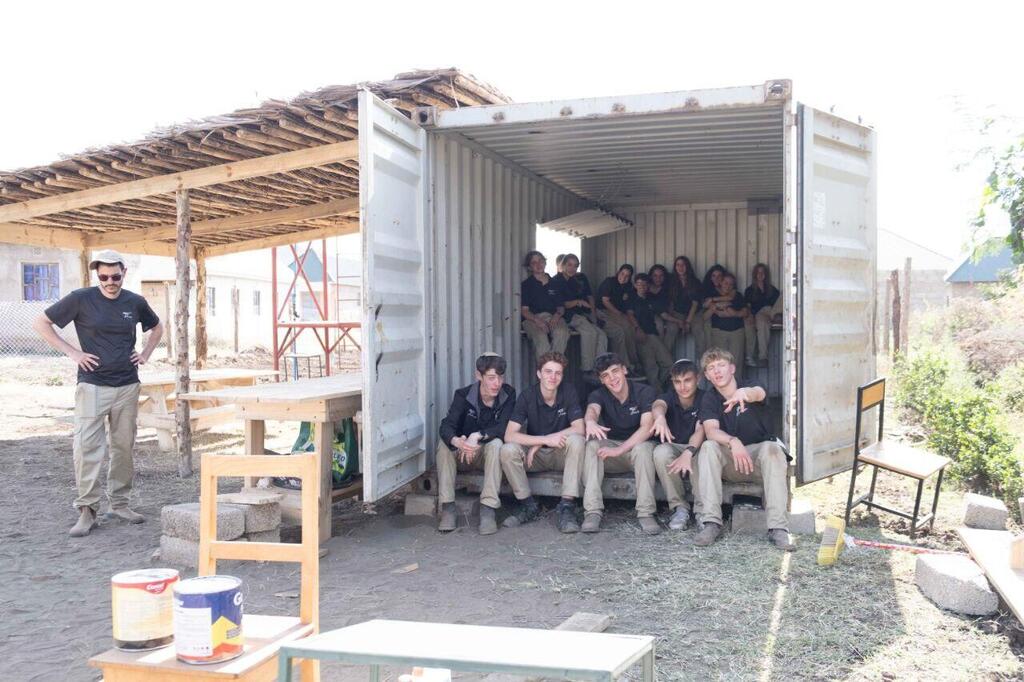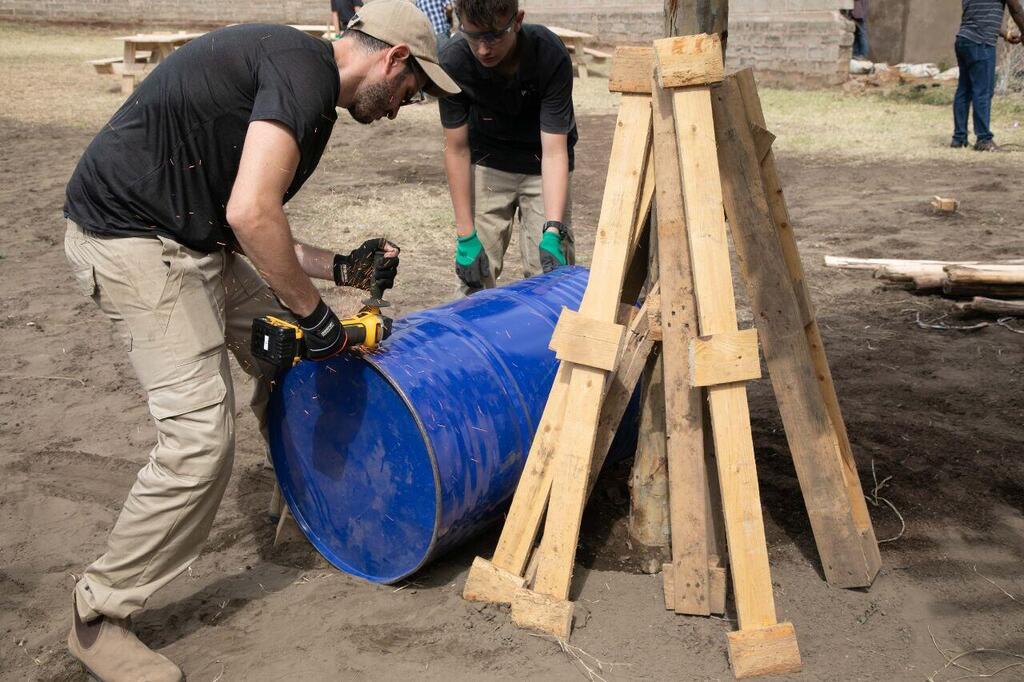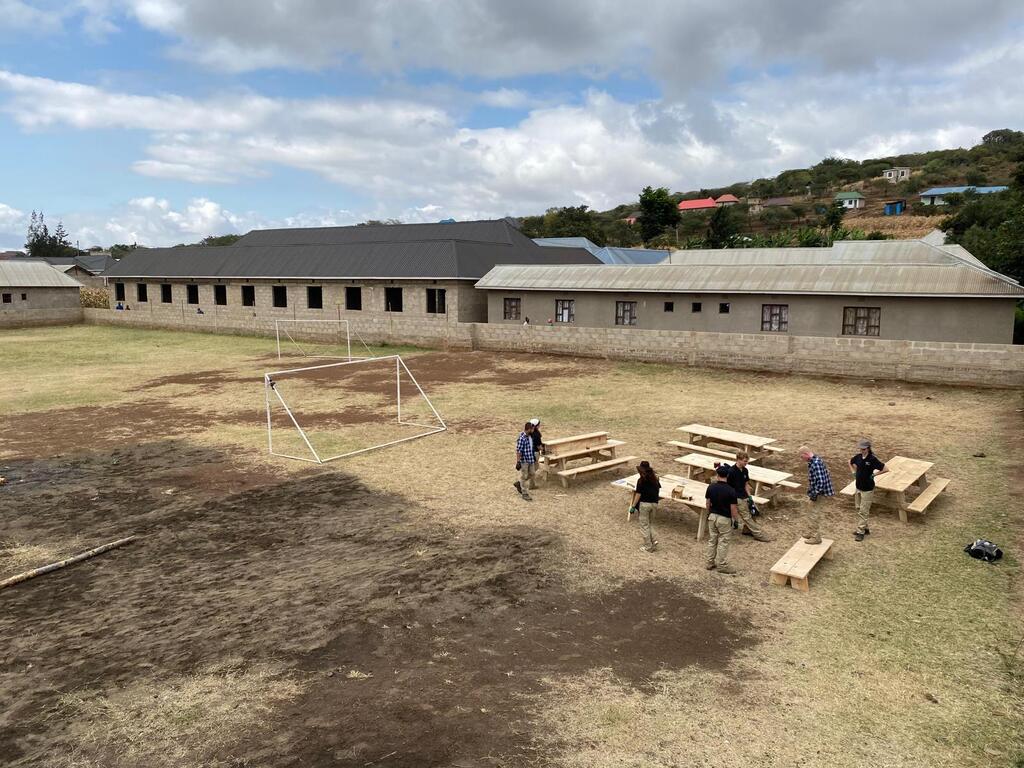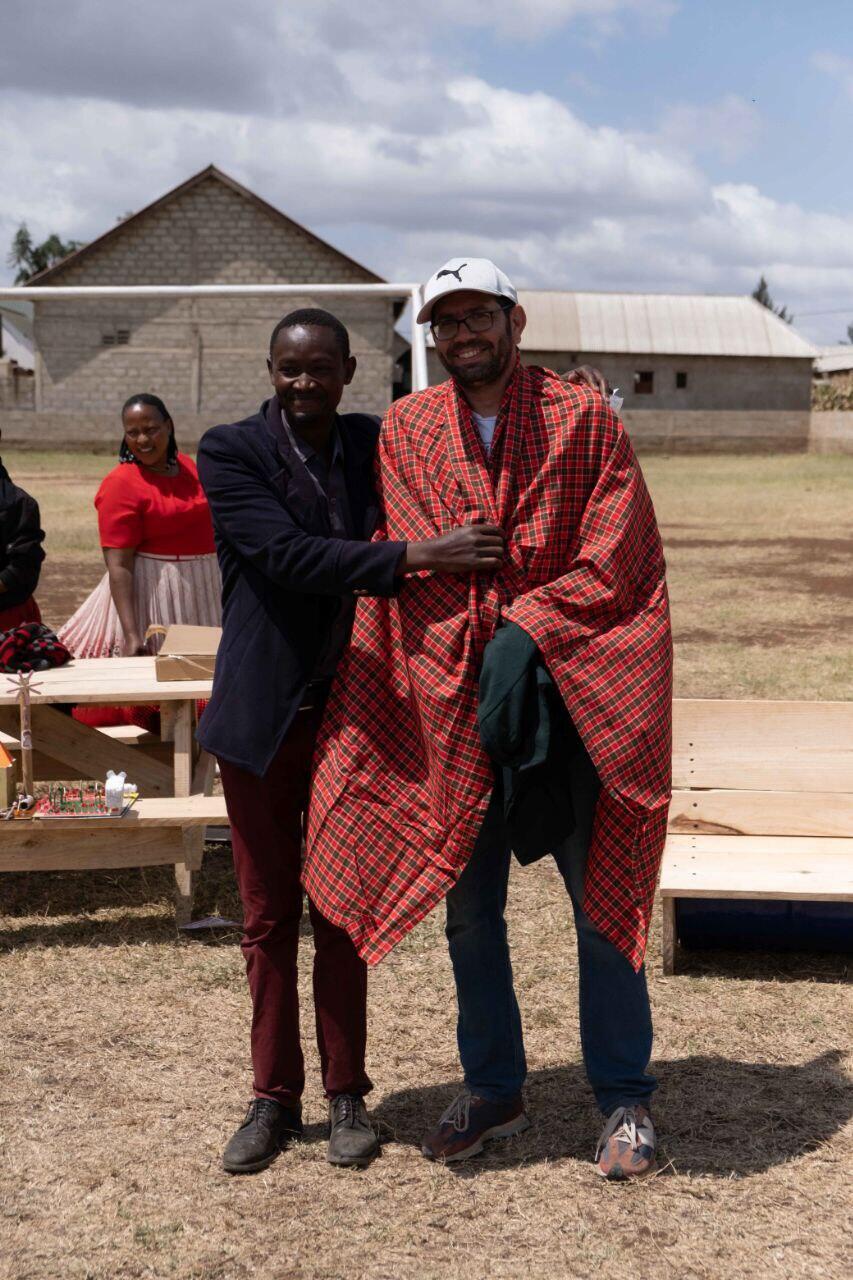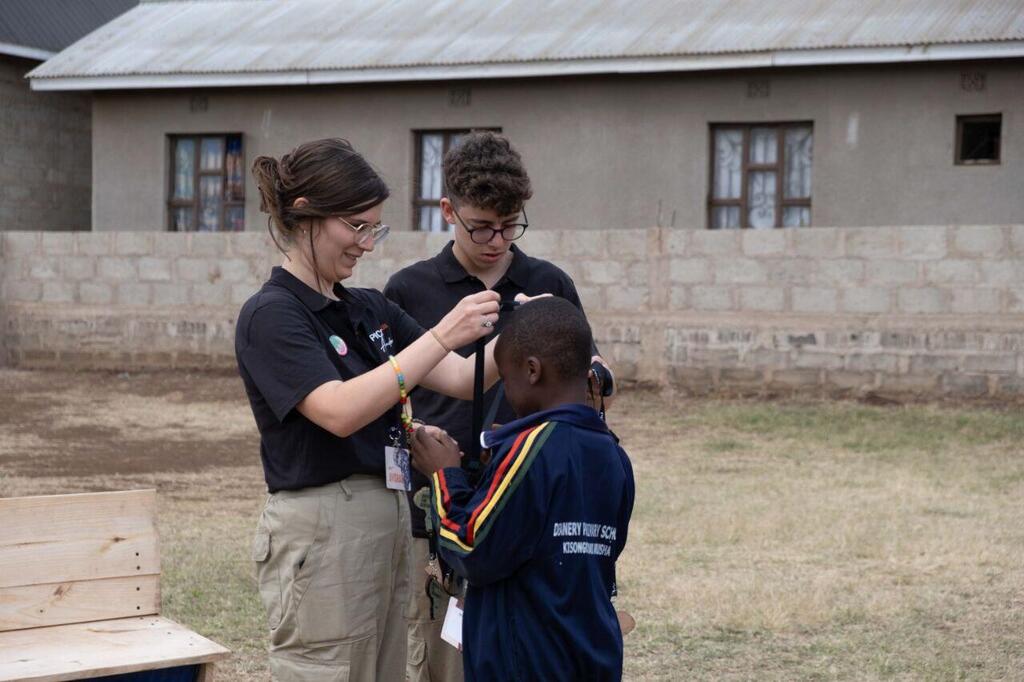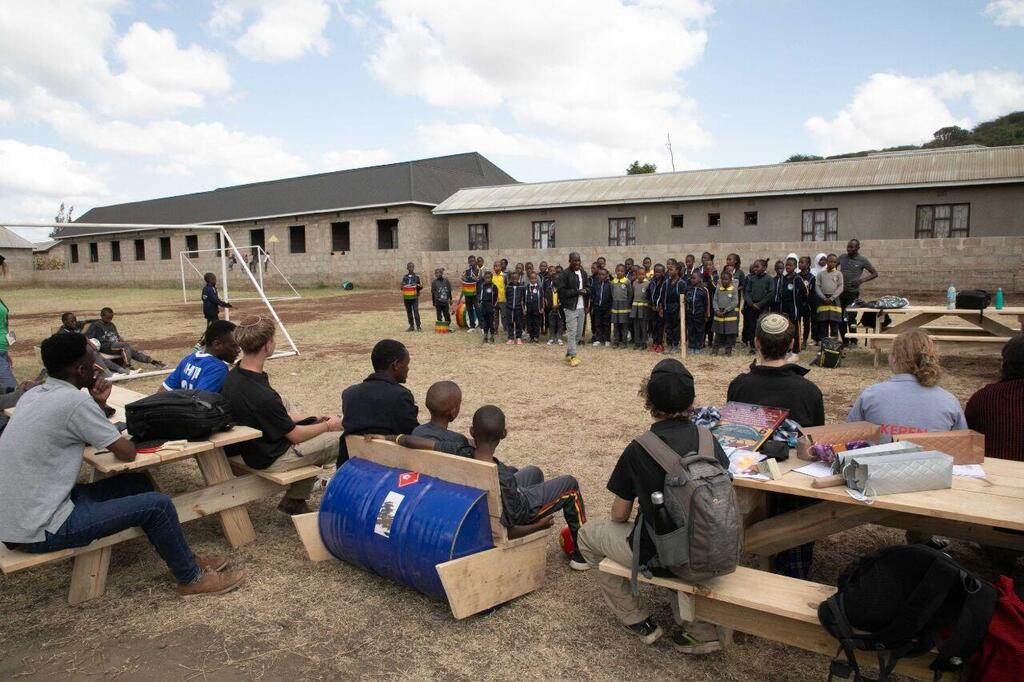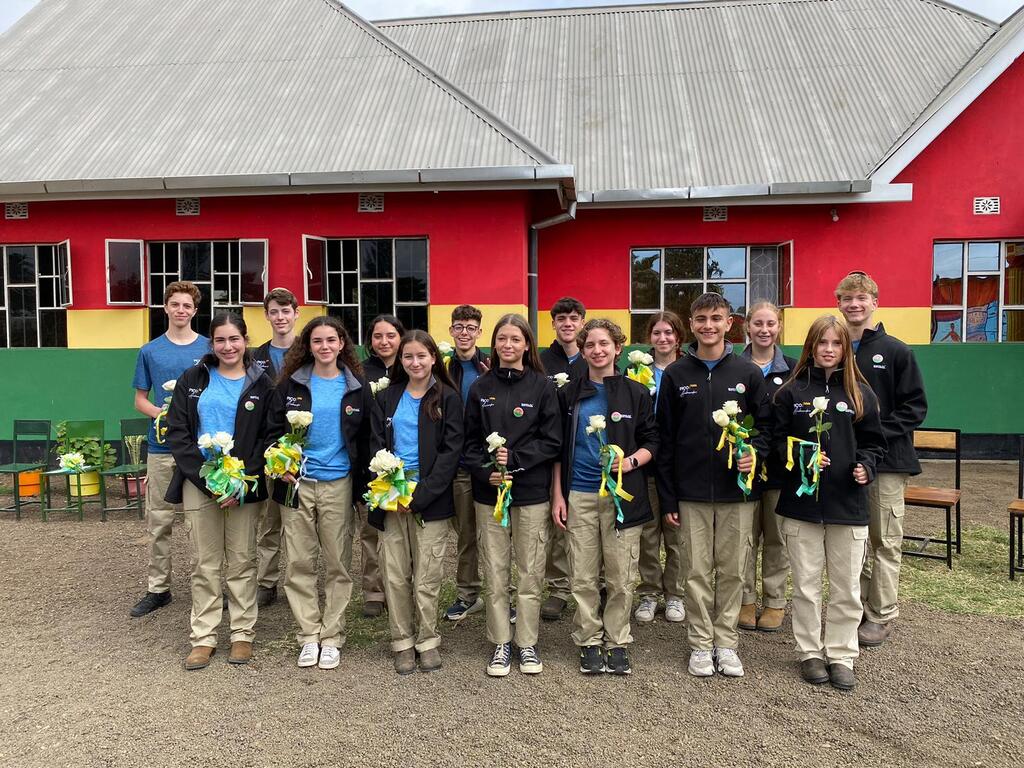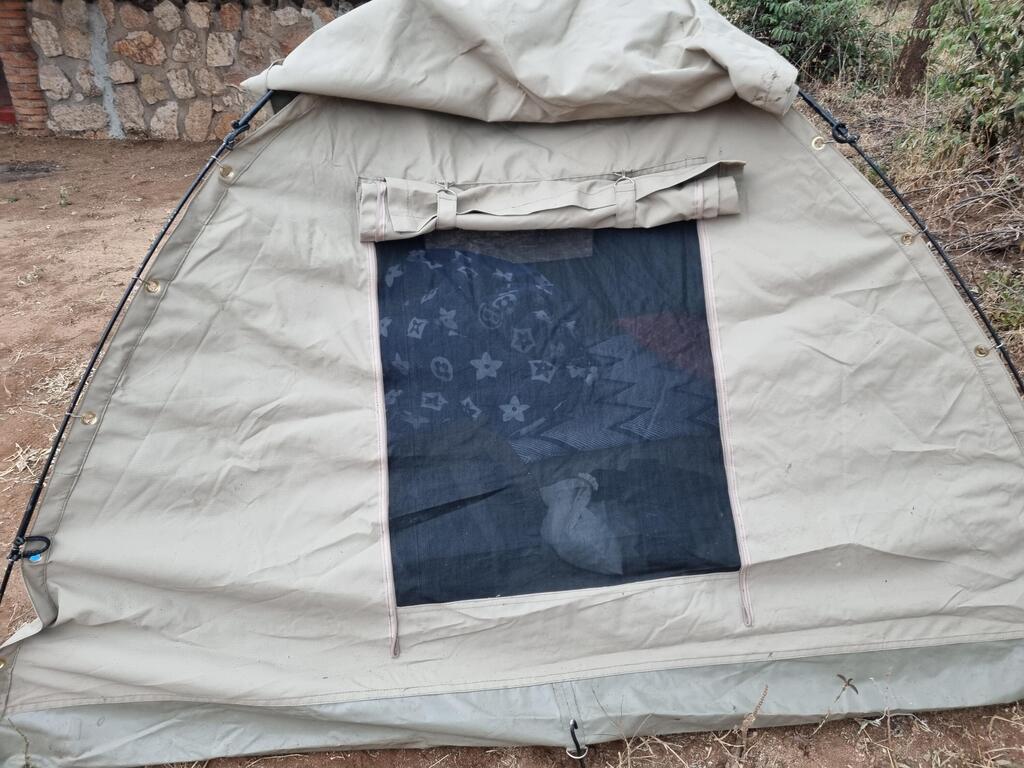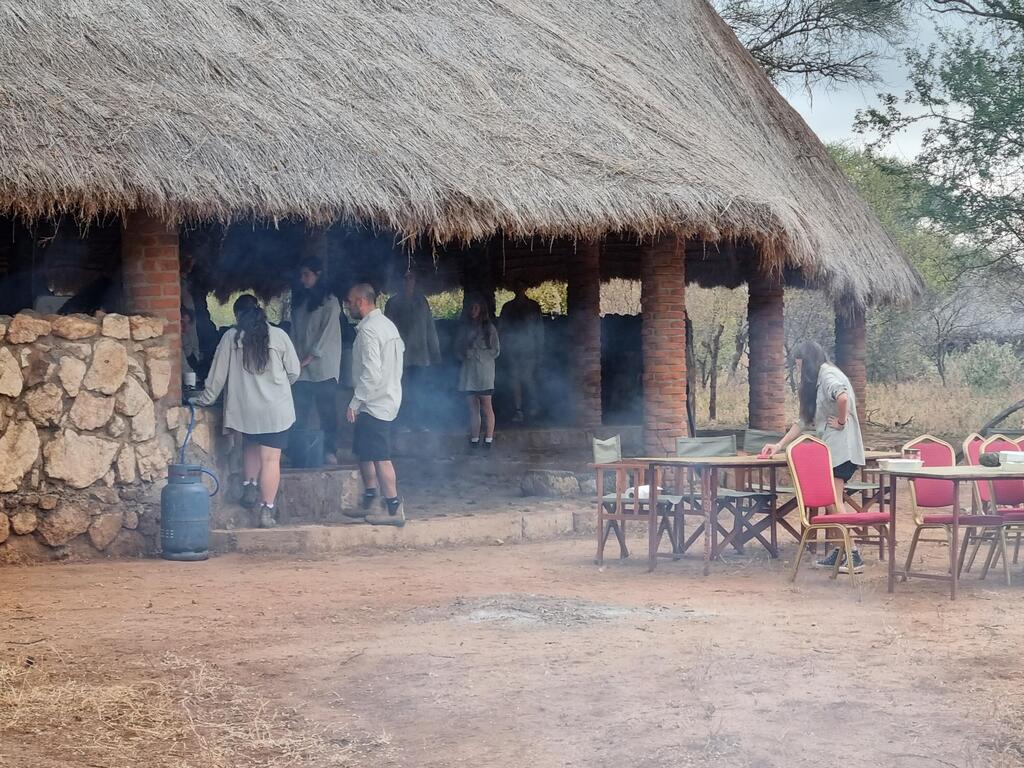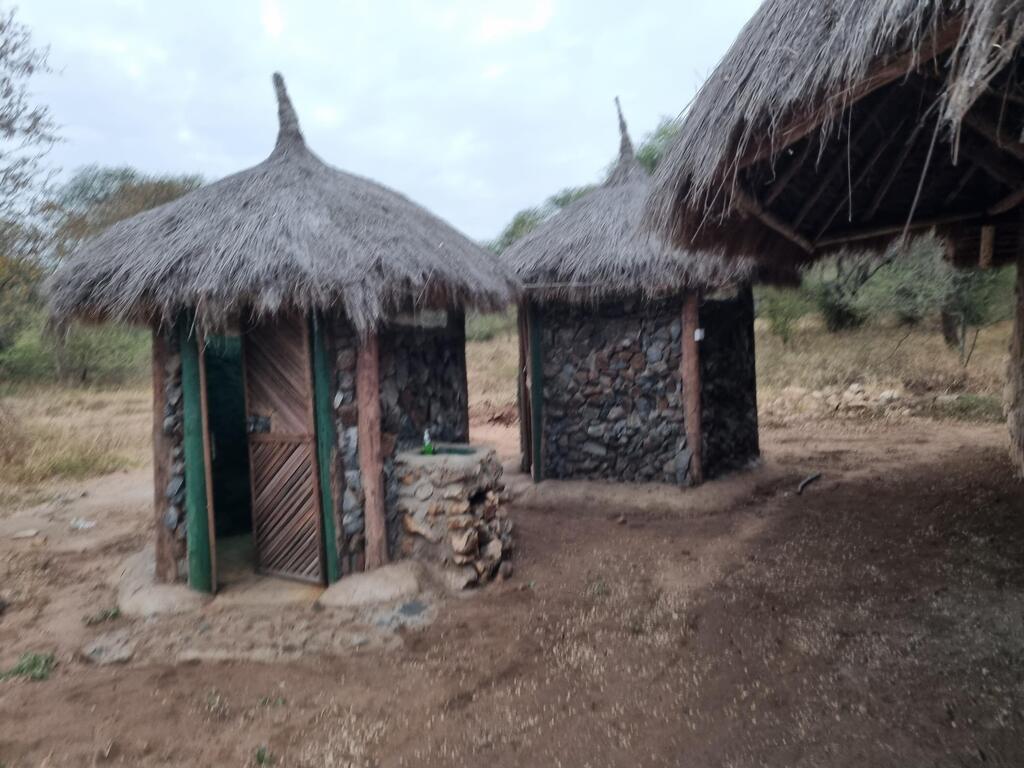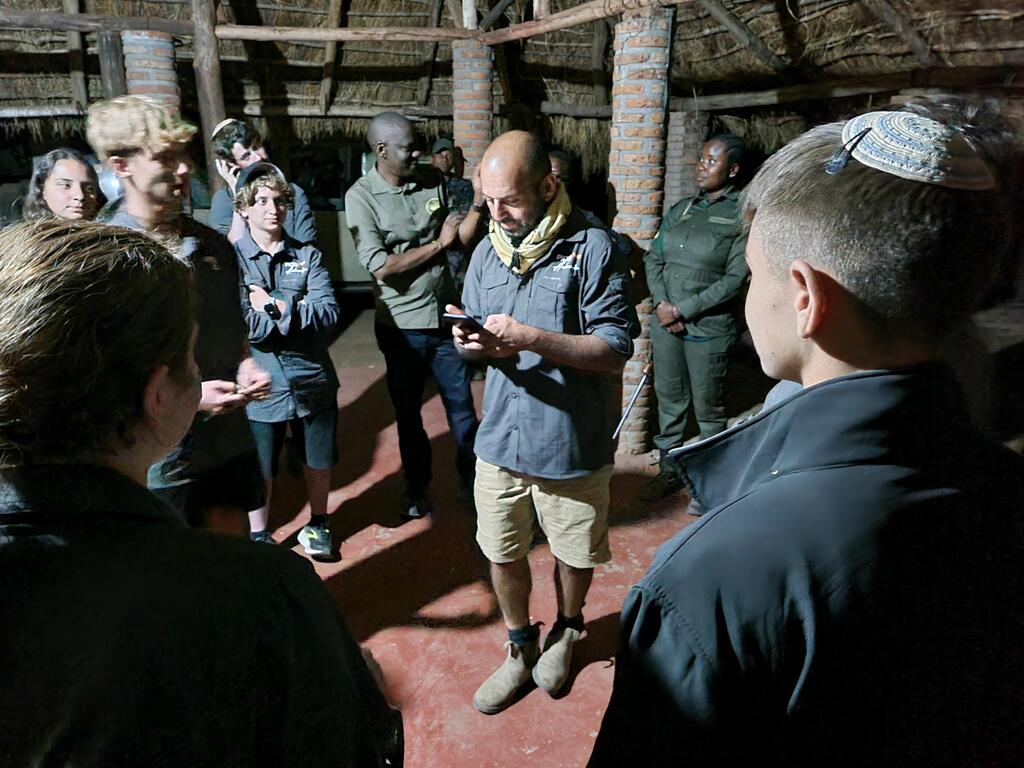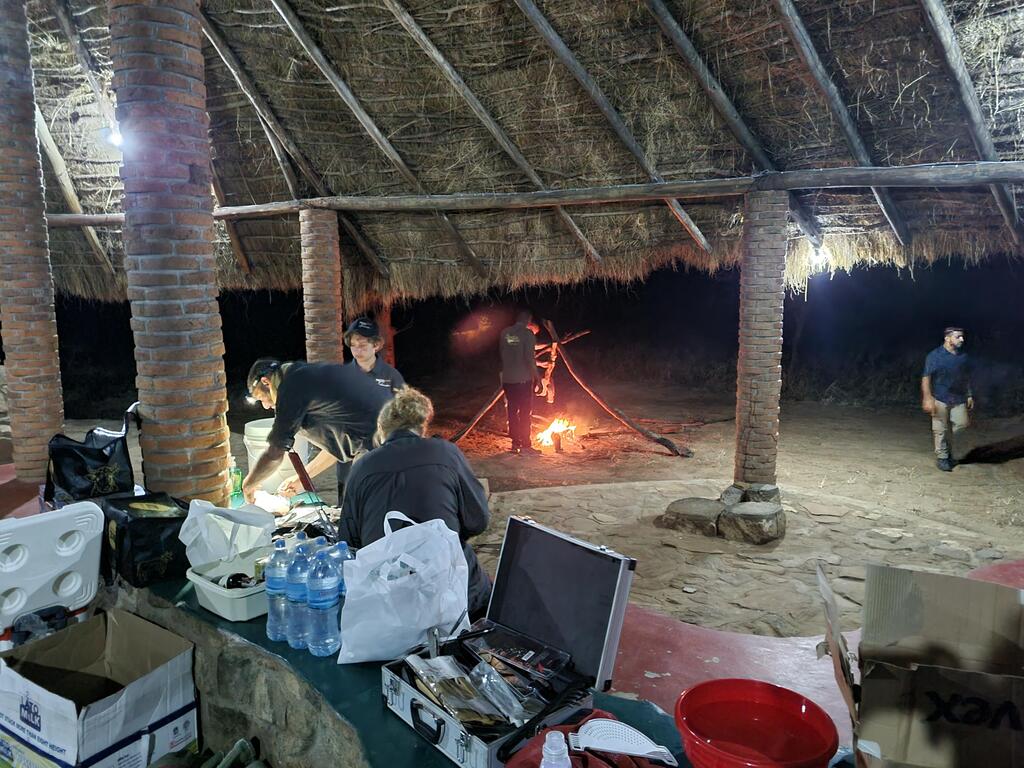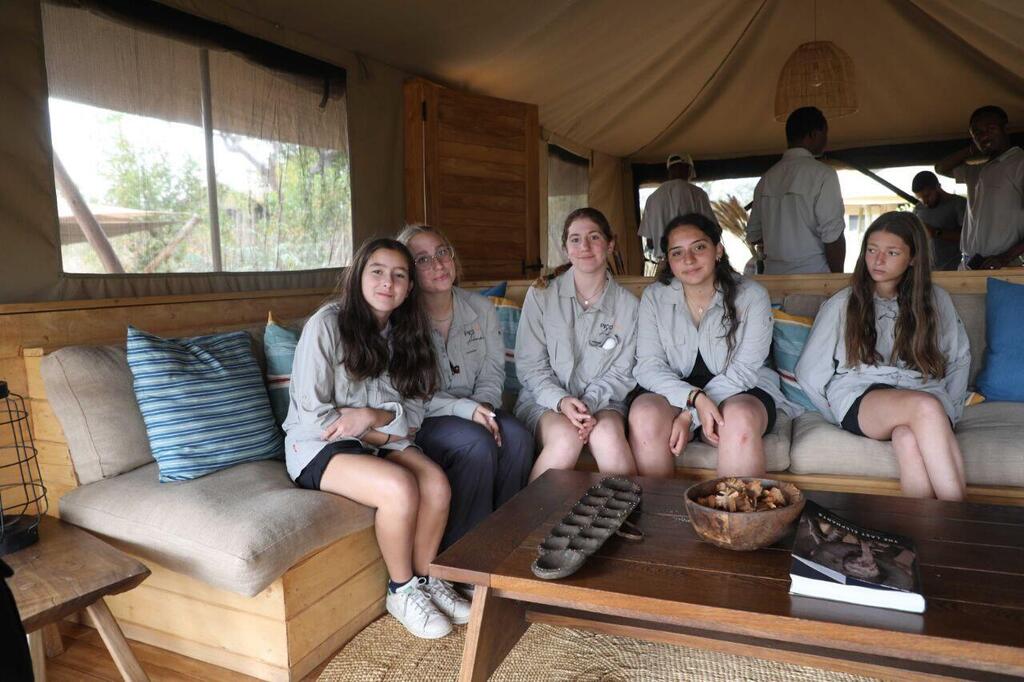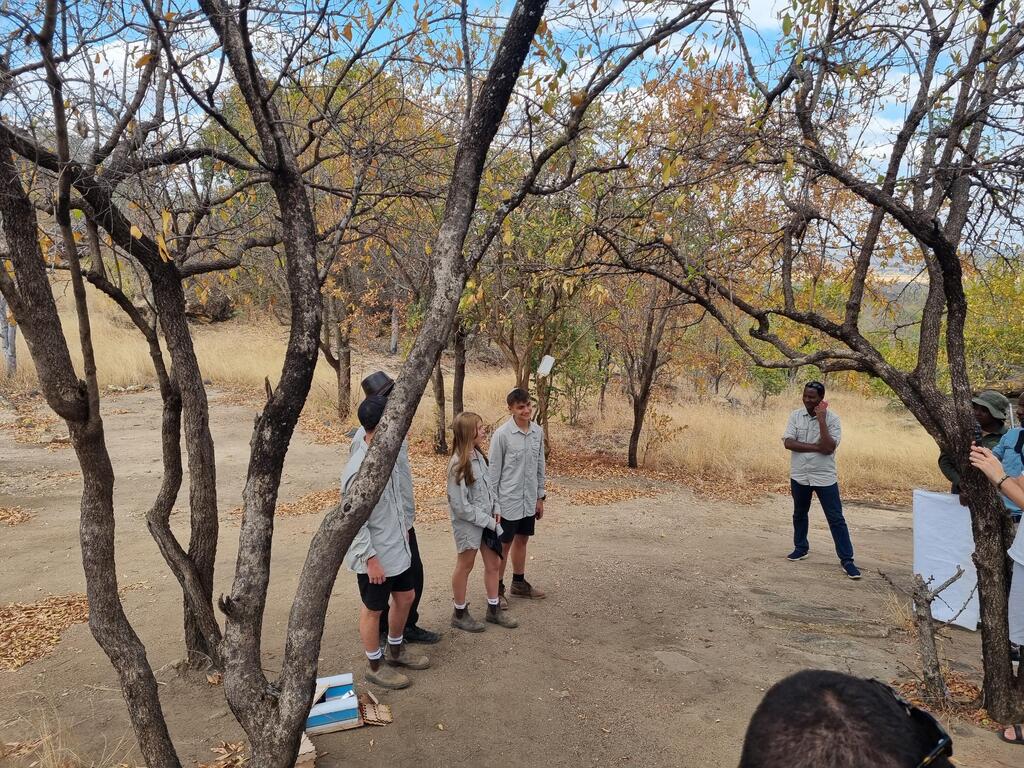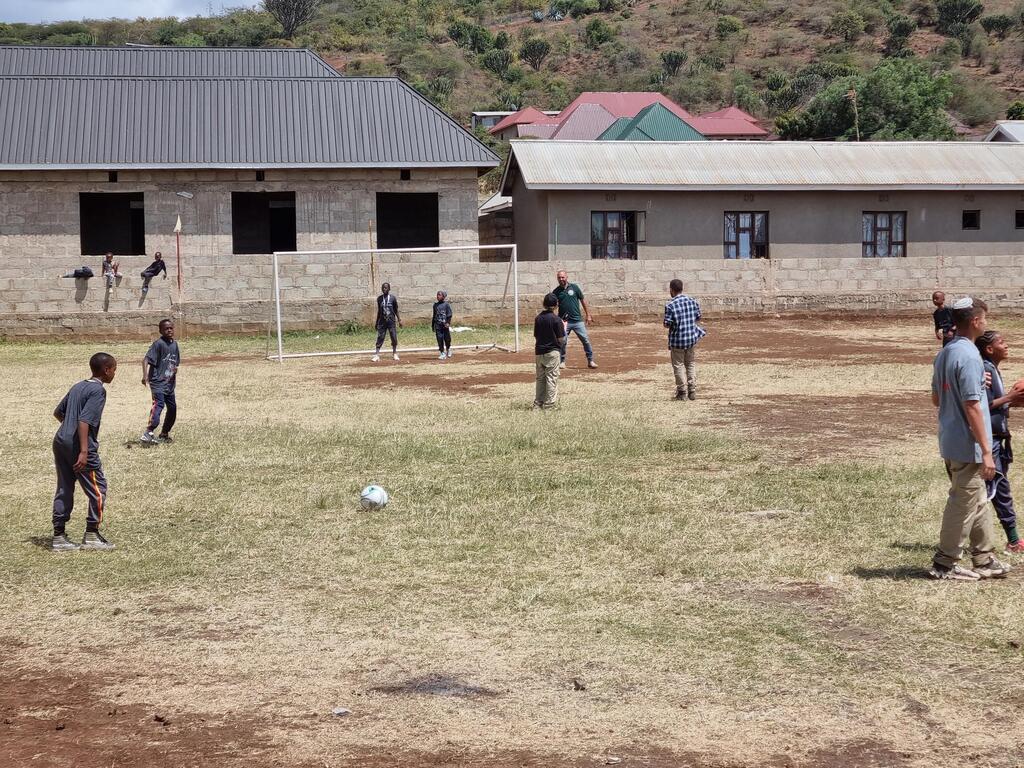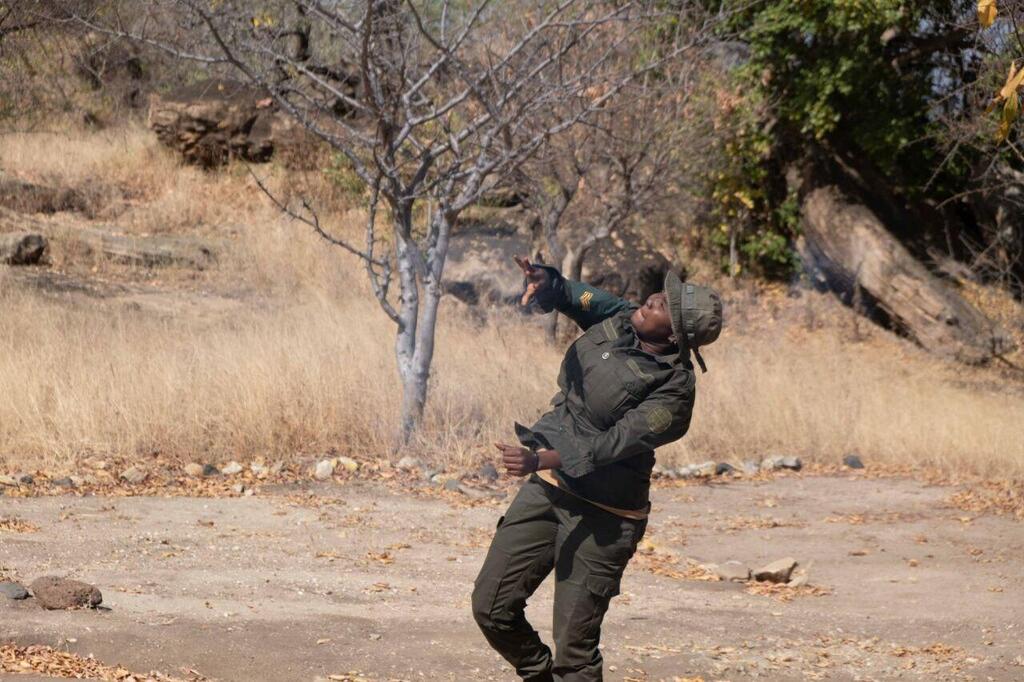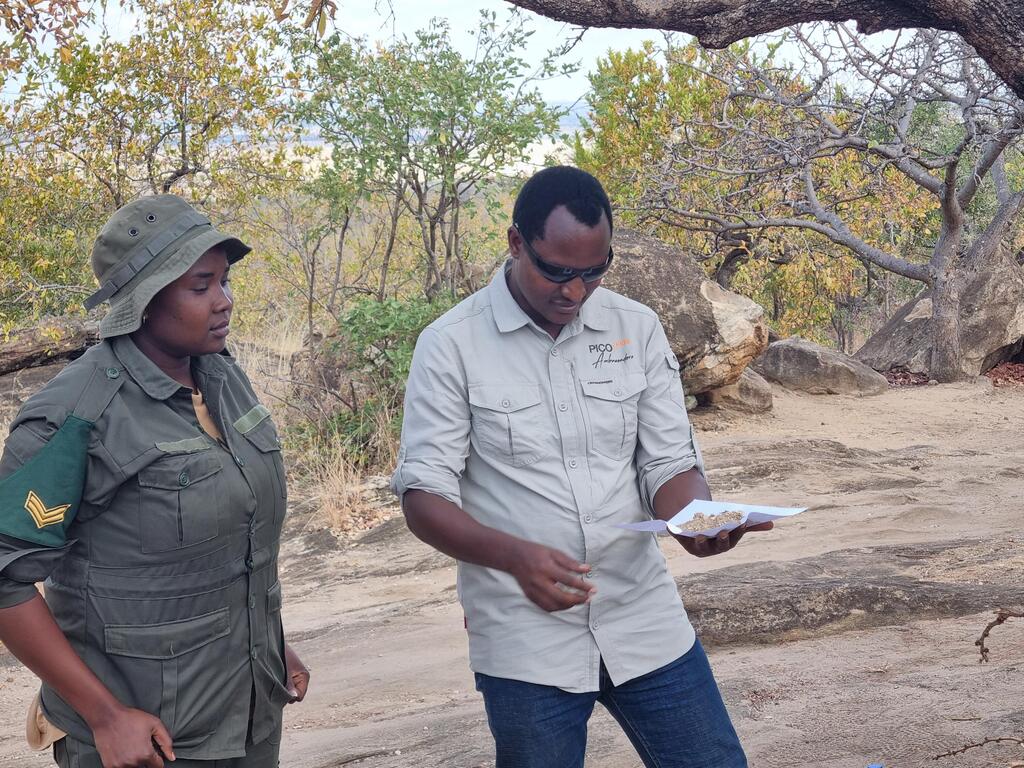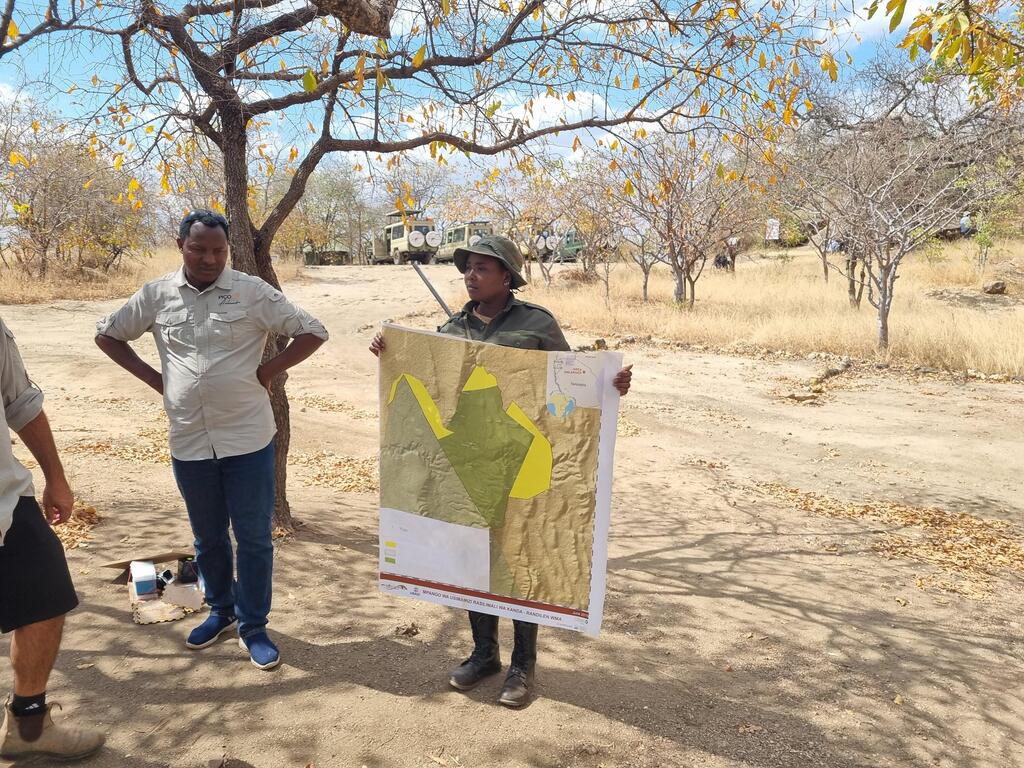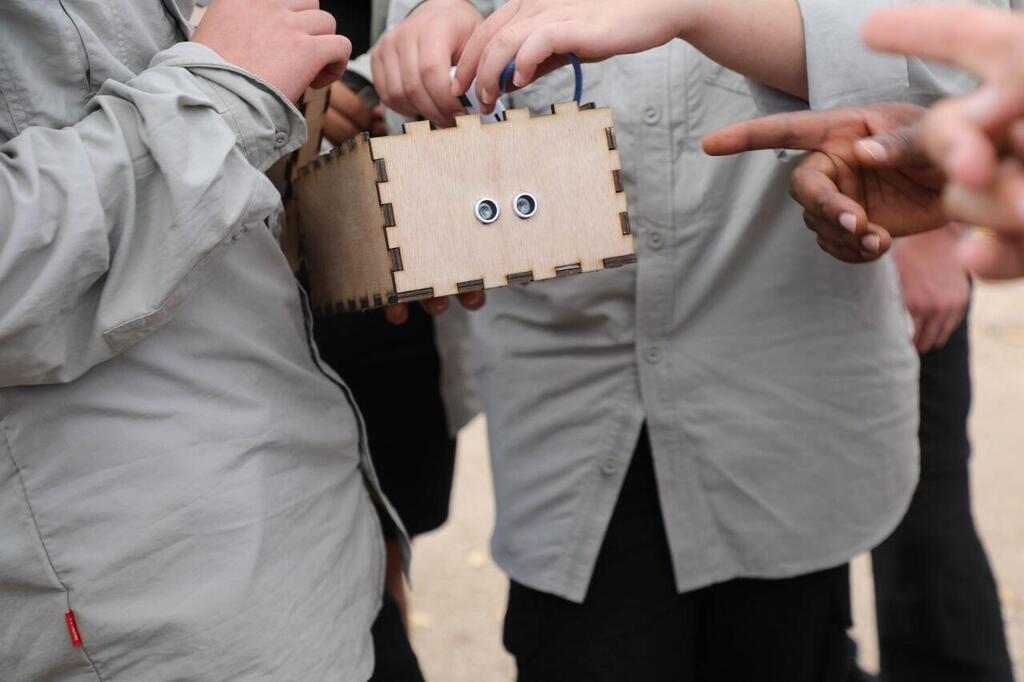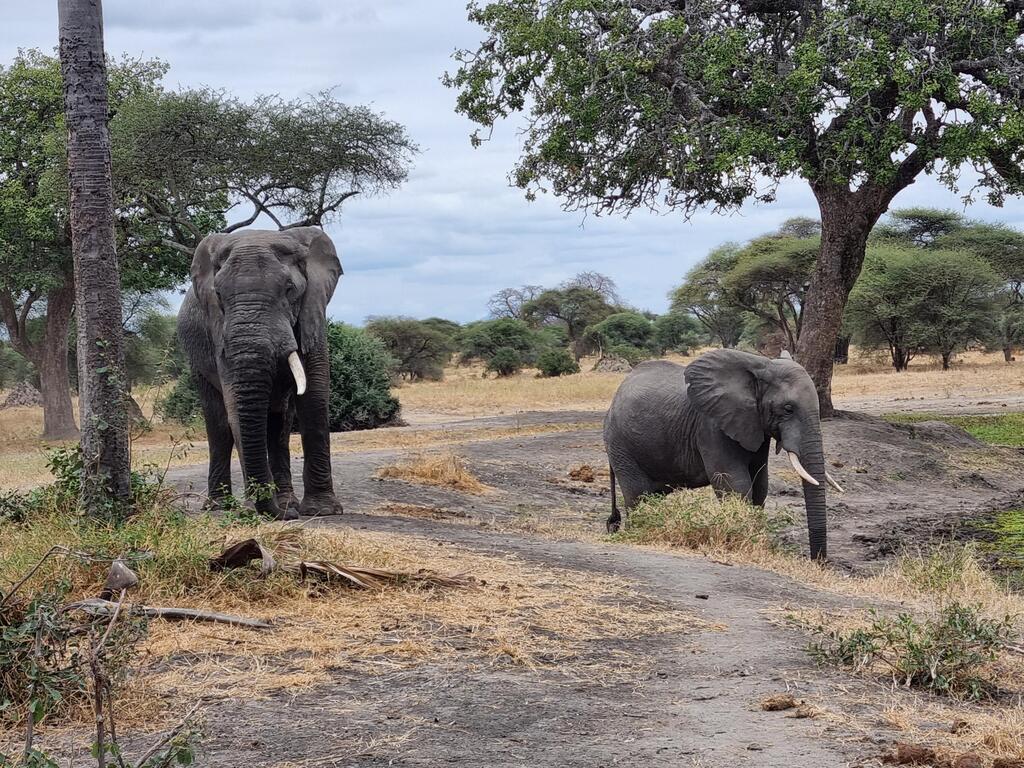Getting your Trinity Audio player ready...
The delegation in Tanzania
(Video: Ran Rimon)
While the Israeli streets teemed with protesters, deeply divided over the Reasonableness Bill, I was part of a young Jerusalemite delegation to Tanzania, backed by Allon Bloch in partnership with PICO Kids.
Read more:
Being with 15 high school sophomores, with the exception of one freshman and another heading to a pre-military program, filled me with profound optimism. I saw firsthand that Israel's emerging generation is one of promise and hope. Not all is lost. Quite the opposite, in fact.
At a time when the Israeli public is divided, students from the PICO delegation gave their all to help an underprivileged school in a third-world country that was foreign to them. They created innovative solutions to cope with local agricultural challenges, and developed their leadership skills, cultivating their abilities to not only teach and speak, but to listen and learn.
This was the secret of the delegation that I joined for ten days. The PICO delegation’s time was divided into three parts: workdays in the school, work on a project to deter elephants from agricultural crops in the Randilen region, and a safari (a separate article about the visit to the safari will be published soon).
But the delegation’s activities embodied so much more than that. It was much more than building, studying and providing solutions. The PICO students acted as "young ambassadors" who came to be enlightened, as well as to bring their own light from Israel.
They regarded the trip as a mission to represent the best of Israel’s values, irrespective of political opinions on the judicial overhaul raging in Israel or matters of religion. Incidentally, many members of the delegation were observant Jews, and we adults have a lot to learn from them about integration and respect between religious and secular groups.
As Elie Wurtman, Managing Partner of PICO Venture Partners and Founder of PICO Kids, said before the trip: “We are celebrating a decade of activity for PICO Kids that started out with 12 students and today boasts over 60 schools, thousands of students and 24 educational programs.
At their core, our values and principles are based on getting acquainted with people different than ourselves, learning and teamwork, adopting practical tools to succeed and overcome obstacles with the help of empathy and 'Tikkun Olam', improving the world. These values will lead to building shared bridges for a more equitable society. I am thrilled that our tenth delegation is to Tanzania. This is the first milestone for our continued activity in Africa."
Since its inception four years ago, the PICO Kids Ambassadors program has led 10 delegations with 170 students to global partner communities in Hong Kong, Shanghai, Dubai, and Bahrain.
This tenth delegation to Tanzania took place in a significantly tougher location with challenging infrastructure, which will undoubtedly require additional delegations to Tanzania to carry on what this first delegation started. Otherwise, all our efforts will have been for naught.
The A-Team
The director of PICO Kids and head of the delegation, Meidan Alkobi, managed a team of four wonderful counselors who knew how to respond to the needs of each of the delegation members at every given moment. All four have hands of gold, endless talent, endless patience, and I was happy to see that Sahar, Yonatan, Avishag and Elad are doing an excellent job cultivating the next generation of Israeli youth.
The counselors were carefully selected to participate in the delegation. Sahar comes from the hi-tech sector and works with young people once a week: “I started working with PICO as a student at the recommendation of my friend Avishag, who is now my fiancé. I am 31 years old, work in hi-tech, and this is my annual holiday. At my office, they are very supportive of my work with PICO and I used my vacation days to take this trip.”
The teenagers are disciplined and attentive, and each counselor is responsible for four kids 24/7. Eight boys and seven girls were meticulously selected and underwent an intensive three-week preparatory course ahead of the trip to Tanzania. "My parents are against youth movements because they believe they lack substance, but here we learn a lot,” says one of the girls.
Another boy said he worked for a long time to be able to pay for his participation in the delegation (participants pay a subsidized symbolic fee, and some students receive scholarships).
PICO Makeathon
Members of the delegation were divided into groups that comprised Makeathon teams, consisting of children from the local school and delegation representatives. The goal was to brainstorm ideas and develop models for clean energy, water storage, resource management and sustainable agriculture.
The teams met for three days, iterated on ideas and built prototypes, and in the near future, the local school children will work on implementing the new concepts they developed. All the challenges the students worked on are rooted in the UN’s Sustainable Development Goals.
Alongside the students participating in the Makeathon, additional students from the delegation were divided into teams that worked tirelessly outdoors, physically laboring to build a new kitchen for the school with propane cookers that will replace the existing kitchen that relies on coal heating, as there is no supply of electricity at the school.
They were also busy building picnic tables, a playground with swings, game tables and a roof for the kitchen. All the work was done by the delegation members who worked arduous 12-hour days.
Hard at work
Spread out on many tables were power tools, most of which were brought from Israel, and every student knew what tool they were working with, their role on the team and how much time it would take to build the item they were responsible for.
Together with the children from the local school, an entire quarter acre was prepared for growing agricultural crops in cooperation with a local agronomist with the guidance of a representative of the MASHAV Program, the Israeli Agency for International Development Cooperation of Israel’s Ministry of Foreign Affairs.
The local children received training on how to grow vegetables on the plot of land. For many of them, their only hot meal of the day is the one they get at school and the vegetables they can now grow will be a source of nutritional and food security.
Agriculture in Tanzania is not developed and assistance is needed in this area. To provide a water source to irrigate the field, a water tower was erected adjacent to the agricultural land and drip emitters were dispersed for irrigating the crops.
Plant sprouting areas were also set up. Currently, cabbage, spinach and kale will be grown in the field, and other crops can be added in the future to supplement the nutritional ingredients that the local children lack.
The concept is long-term crop maintenance with weekly visits by a local agronomist who will come to check on the crops tended by the delegation members, as well as Eitan Hatzor, an agronomist and MASHAV representative from the Israel Embassy in Kenya who came specially to help.
The members of the delegation demonstrated exemplary discipline. At first, I was just an observer, but I very quickly abandoned my camera, notebook and pen and pitched in. This took me back to my days in the Israeli Scouts, a sense of teamwork and total devotion to the mission at hand.
Setting cynicism aside
One can drown in a sea of cynicism with phrases such as "helping others (non-Israelis?," "why help those outside of Israel?" or "what are you looking for in Tanzania?", but it was in Tanzania that we all learned a lesson in humility, learning from people with another perspective and from another culture.
Meidan constantly told the delegation students that they come as equals, to meet the community eye-to-eye, without any sense of superiority. They didn't come to help, but to collaborate as partners. “We contribute and also have just as much to learn," was a phrase I heard more than once from more than one student.
The students also said that they gained friends for life: “Where else would we have the opportunity to go to Africa to help others?"; "This is mutual enrichment. We contribute and learn in equal measures.”
After three intense days under challenging conditions, the project ended with a farewell ceremony with the school's students, and the Makeathon participants presenting their work.
In anticipation of the Randilen Project
I left the group for a few days and returned for the safari and, of course, the Randilen project. Randilen is a vast expanse of land covering about 1,500 km connecting the Tarangire Wildlife Park and an inhabited area of eight isolated villages in Randilen. This is a unique project that combines ecotourism and nature conservation, with the entire reserve belonging to the Maasai tribe.
On both nights, the whole delegation slept in tents near one of the villages in the same region. This was a campground without running water or a steady supply of electricity.
As part of the preparatory process and leadership studies, the delegation was divided into groups responsible for preparing a sleeping area, food, and the operation of the location. There was no fuss and no whining, but rather the sense that we have a determined, strong next generation to lead Israel in the future.
“The youth’s determination and resolve to drive positive change," says PICO Kids founder, Elie Wurtman, "proves our belief in the potential of today's youth to shape an optimistic and better future."
It is worth noting that two years ago, Elie Wurtman and Allon Bloch partnered with local entrepreneurs in Randilen to invest in the Entara safari camp with the aim of creating a business that would support the local community, create opportunities for economic prosperity through ecotourism, as well as deploy strategies for conservation and environmental sustainability.
How to integrate life of Maasai tribe with wildlife
In preliminary conversations with the people involved in the Randilen Project, the youth from the delegation came up with solutions for integrating the life of the Maasai tribe with the wildlife in the reserve. The main challenge is the friction between farmers and elephants, a situation that usually ends in disaster for one of the parties.
During the preparatory course in Israel, PICO Kids developed techniques for keeping the elephants at bay and presented their prototypes to residents and park rangers.
Today, rangers use several methods to drive away elephants. They begin by flashing a flashlight, and if that fails, they sound a horn and then shoot chili powder. As a last resort, the rangers hurl a condom filled with chili powder and explosives to deter the elephant.
PICO Kids Ambassadors developed and built three prototypes for solutions which they demonstrated for the park rangers:
1. A treading system for elephants that makes sounds that drive the elephants away.
2. A system of sensors that detect movement and can warn before the arrival of herds in populated areas and activate a siren if necessary.
3. An artificial beehive that uses sensors and the sound of bees to drive elephants away. In a study conducted by students in Israel, they discovered that elephants are afraid of certain bees. The sensor activates a buzzing sound of these bees, with the option to release bees from the hive when a heavy animal approaches.
“The brilliant ideas the students came up with, along with the development of technological systems and the building of furniture and study spaces, proved the power of teamwork for achieving a common goal, which is both inspiring and hopeful. PICO Kids’ collaboration with the community in Tanzania has a long-term positive impact on the relationship between Israel and Africa. I am incredibly grateful to Allon Bloch for his support of this delegation that transformed the idea into a reality,” concludes Wurtman.
Frayda Leibtag, Partner and Head of Investor Relations and Communications at PICO Venture Partners, who accompanied the youth delegation said: “Seeing the students learn, develop, expand their horizons and bond with the local students was a moving and extraordinary experience that enabled me to see Tanzania through the lens of the students’ perspective."
Returning home optimistic
After spending ten days with the delegation members, I was happy to discover that there are projects and people whose hearts are still wide open. Meidan Alkobi does sacred work with the students, teaching them that everything must be done "with humility and a desire to learn from others." These students absolutely represent the best of the future we want to see in Israel. Such a bright light shining in these times is not to be taken for granted.
Before leaving, PICO stated that the main goal of the program is to provide practical and applicable tools for local inhabitants to support the development of sustainable solutions to meet the challenges they face and to support their implementation during the mission.
They also aimed to raise environmental awareness and develop social responsibility, while strengthening the leadership skills of the participants, alongside their ability to manage processes with teamwork and problem-solving. And all this while serving as “young ambassadors” and sharing with the locals the spirit of Israeli entrepreneurship and volunteerism. I think the PICO team can breathe a sigh of relief and be very proud of what they have accomplished.
First published: 10:20, 08.14.23





